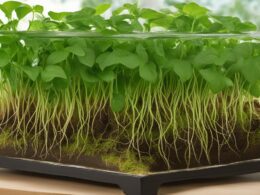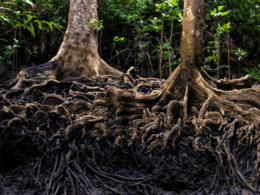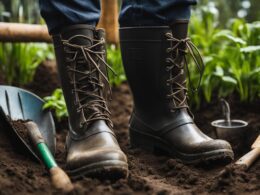Are you struggling to decide which type of soil enhancement to use in your garden? As a gardener, you want to ensure that your plants get the proper nourishment they need to thrive.
Compost, manure, and fertilizer are the three main options, each with their own unique advantages and disadvantages. It can be overwhelming to choose which one is best for your garden, but fear not, we’re here to help you make an informed decision.
Natural soil enhancements are vital for the health and growth of your plants. Using these organic materials can improve soil structure, increase water retention, and promote healthy microbial activity.
Compost, manure, and fertilizer each have their own benefits and are suited for different gardening needs. By understanding the advantages and application techniques of each option, you can make an informed decision on which is best for your garden, ensuring your plants receive the nourishment they need for optimal growth and safety.
Quick Summary
- Composting is a mixture of decayed organic material that is best used in spring for optimal soil balance and plant health, and can be used as mulch or mixed with soil.
- Manure, which has been used for thousands of years to improve soil structure and supply essential nutrients, is best used from grass feeders like chickens, rabbits, cows, sheep, horses, and goats, and should be used weeks or months before planting.
- Fertilizer, made in factories using concentrated synthetic chemicals and naturally occurring minerals, can harm soil microbes with excessive use and should be avoided near bodies of water and after the first frost of the year.
- Proper fertilization can lead to better plant growth and yield, and using responsible methods for enhancing soil and preventing environmental harm is important.
Is Triple 13 Fertilizer a Good Option for My Garden Compared to Compost and Manure?
When deciding on the best fertilizer option for your garden, using triple 13 fertilizer can provide numerous benefits. While compost and manure are popular choices, triple 13 fertilizer offers a well-balanced blend of essential nutrients that promote healthy plant growth. Its granular form allows for easy application and absorption. Consider using triple 13 fertilizer to enhance your garden’s nutrient content and yield impressive results.
Benefits of Natural Soil Enhancements
If you’re looking to improve soil health and plant growth, natural soil enhancements like compost and manure are great options to consider. These organic materials are full of beneficial nutrients that help to nourish the soil and promote better plant growth.
Compost, for example, is a mixture of decayed organic material that is rich in nutrients like nitrogen, phosphorus, and potassium. When added to soil, compost helps to improve soil structure, retain moisture, and support the growth of beneficial microbes that help to break down organic matter and release nutrients into the soil.
Manure, on the other hand, is another great option for natural soil enhancement. It is full of essential nutrients like nitrogen, phosphorus, and potassium, as well as other important trace elements. When added to soil, manure helps to improve soil structure, increase soil fertility, and promote better plant growth.
It is important to note that fresh manure should be aged before application, as it can burn plants if applied too soon. By using natural soil enhancements like compost and manure, you can improve the health of your soil and enjoy healthier, more productive plants.
Application Techniques
To apply nutrients to your garden, there are a few techniques you can use. For liquid fertilizers, a watering can or hose sprayer attachment will do the trick. For granular fertilizer, you can use a hoe or tiller to work it into garden beds. If you have a large area like a lawn, a broadcast spreader is the best option.
Remember, proper application is key to avoiding harm to your plants and the environment. Here are a few tips to keep in mind:
- Water the area thoroughly after fertilizer application.
- Avoid using near bodies of water.
- Always follow the manufacturer’s instructions.
By using responsible methods, you can safely enhance your soil and promote better plant growth.
Understanding Fertilizer Effects
Understanding the effects of different fertilizers on your plants is crucial for promoting optimal growth and yield. The type of fertilizer used can significantly impact plant growth rates.
For example, the use of synthetic fertilizers can stimulate rapid growth, but also harm soil microbes and have negative environmental impacts, such as water pollution. In contrast, natural fertilizers like compost and manure can provide slow-release nutrients that nourish both the plants and soil, resulting in healthier and more sustainable growth.
It’s important to consider the environmental impact of fertilizers when choosing which type to use in your garden. Some fertilizers contain harmful chemicals that can leach into water systems and harm aquatic life. Therefore, it’s essential to follow proper application techniques, such as avoiding use near bodies of water and using only as directed.
By understanding the effects of different fertilizers on plant growth and the environment, you can make informed decisions that promote healthy and sustainable gardening practices.
Frequently Asked Questions
Can compost be used as a sole growing medium for plants?
While compost has many benefits as a soil amendment, it should not be used as a sole growing medium for plants due to its limitations. Compost lacks essential nutrients and can retain too much moisture, leading to root rot.
How long does it take for fresh manure to become aged and safe for use in gardening?
To ensure gardening safety, aged manure should be used instead of fresh manure. It takes a few weeks to several months for manure to become aged. Compost can be a good growing medium, and be cautious of fertilizer’s water risks.
Are there any risks associated with using fertilizer near bodies of water?
Using fertilizer near bodies of water can lead to water contamination and have a negative environmental impact. Excessive use can harm soil microbes and contribute to algae blooms, which can harm aquatic life and make water unsafe for recreation.
Can excessive use of fertilizer harm soil microbes permanently?
Excessive use of fertilizer can harm soil microbe health by increasing toxicity levels, leading to reduced nutrient absorption and plant growth. It’s important to use responsible methods and avoid overuse to prevent permanent damage.
How can natural soil enhancements improve the overall health and fertility of soil?
Using natural soil enhancements like compost, manure, and other organic soil amendments can benefit the overall health and fertility of soil. These types of amendments can improve soil structure, increase nutrient availability, and promote healthy microbial activity.









